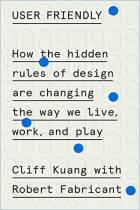Únase a getAbstract para acceder al resumen.

Únase a getAbstract para acceder al resumen.
Jonathan Shariat and Cynthia Savard Saucier
Tragic Design
The True Impact of Bad Design and How to Fix It
O'Reilly, 2016
¿De qué se trata?
Bad design angers, frustrates and upsets users – and it can even harm them.
Recommendation
Poor design isn’t simply unpleasant to look at or frustrating to navigate. It can cause irreparable harm. Designers Jonathan Shariat and Cynthia Savard Saucier present compelling case studies of design gone wrong, such as medical software so unnecessarily complex it caused a young cancer patient’s death or a plane that crashed into a mountain because it had an indecipherable display panel. In addition to design that can kill, the authors explain how poor design angers, saddens and frustrates users, causes injustice or denies people access and, therefore, opportunity. While the authors are heavy on explanation, they prove light on solutions. The main one they strongly recommend is conducting user testing and letting the results inform your design decisions. getAbstract recommends this thorough, well-informed overview to design students and professors, investors, software engineers, web developers, product designers, and anyone interested in design and its processes.
Summary
About the Authors
Designer and app developer Jonathan Shariat is Senior Interaction Designer at Intuit and co-host of the Design Review podcast. Director of Design at Shopify Cynthia Savard Saucier specializes in User Experience Design.


















Comment on this summary